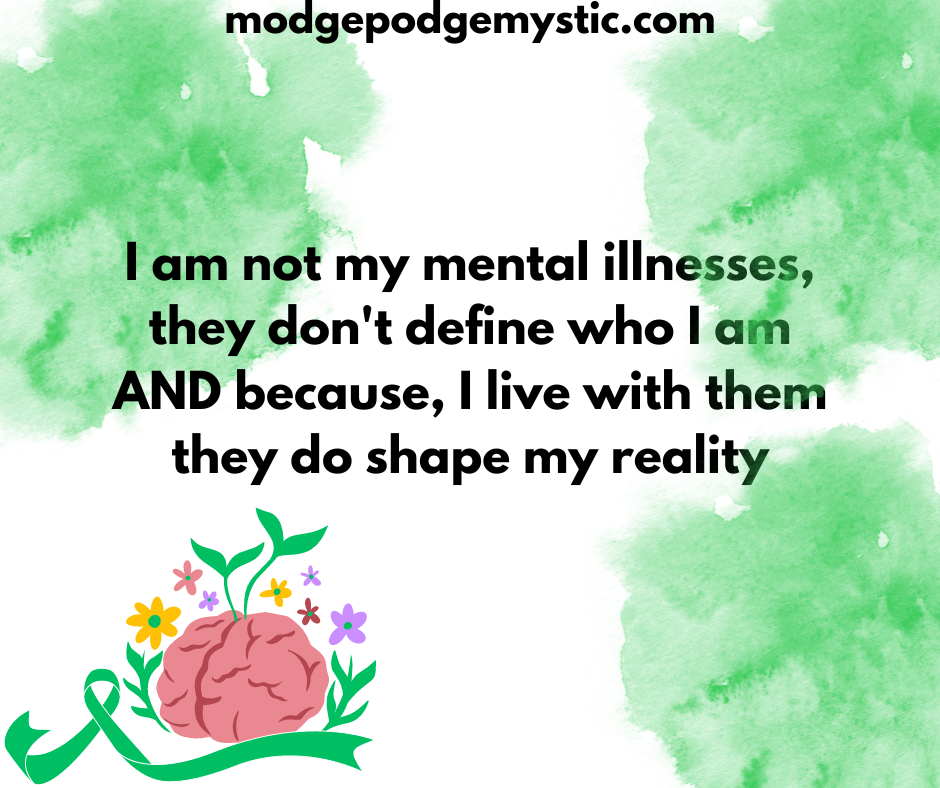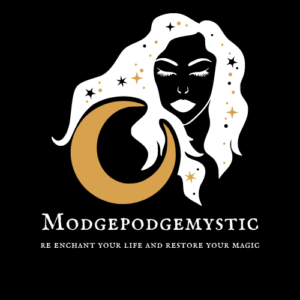

May is mental health awareness month. For many this points a spotlight on mental health and mental illnesses when they may not always think about it and they seek to learn more. While for others it may be a month to focus on improving mental health, healing, and using skills to create a life worth living while living with mental illnesses. Even yet, this month could be the push someone needed to seek help, treatment, or to go and get a diagnosis for the first time.
For myself it becomes a month focused on reflecting on how balanced I currently am, to check in with how well I am using mental health skills and techniques to maintain a healthy mental state, and to really look at my own personal relationship with my mental health and mental illnesses. While reflecting and really looking at my mental health and my relationship currently with mental illnesses this month was a little different for me than in past years because, I wanted to write about it. I have written and rewritten this post so many times this month because during my reflection process my answer would change. I would write an open letter about the illnesses I live with ( OCD, PTSD, Bipolar, BPD, and a few more) and it just wouldn’t feel whole. I would pick my favorite DBT skills to talk about this month and it wouldn’t feel like enough for bringing awareness.
So, I kept waiting, reflecting and rewriting and after a interpersonal conflict which put me in a really unbalanced and depressed state of mind. Where some things were said that were hurtful had pushed me to think about myself, my reactions, and if my view on reality were causing imbalance and unhappiness in my life. Which lead me to really think about the topic I landed on for this blogpost. The fact that I am not my mental illnesses, they don’t define who I am AND because I live with them they do shape my reality and how I experience the world.
I often forget that my mental illnesses don’t define me. I work so hard to try to raise awareness of these illnesses and how they affect your brain chemistry and makeup. I focus so much on wanting people to understand that these illnesses are not just in your head, they are real and they affect your brain chemistry and makeup. That at times I feel I almost let them become my whole identity unintentionally.
I also forget this when I start to struggle. I start to sink into the unwanted parts of my mental illnesses and I begin to believe that’s who I am and all the negative stigmas that are attached to them. When I feel overwhelmed by my symptoms, I try to remind myself that my illnesses are not me. I have to remind myself that my mental illnesses don’t disqualify me from being a mother, and that they can’t stop me from doing anything. I than remind others of the same thing once I am back to believing it, because sadly not everyone in my life agrees with this. Some believe that just having a mental illness means I shouldn’t even be mother.
While all the above is true and I work really hard to do my best to remember that and to remind others. The other half of this is recognizing that although they do not define me and who I am, my mental illnesses do shape my reality, how I experience the world, and how I interact with others. Some of the mental illnesses I have can never be “cured” and some I can’t be medicated for either. Though I can develop a healthy lifestyle based on therapeutic skills to help live a much more happy, balanced and stable life with them. They will always be apart of my life and my reality.
So, what does that mean and why does it matter? For myself I live with bipolar disorder and BPD which can cause some ping ponging on my feelings, thoughts, reactions, and even at times my beliefs. On top of that you through the extreme anxiety that comes with OCD and triggers from PTSD. This undoubtedly means my perception of reality will be affected by these things in ways others may not have to experience. On top of that it will affect how I interact with others and even with myself. This means I can’t allow myself to believe so deeply that I am not defined by my mental illnesses that I completely forget how they affect my perception and my place in this world. That I unintentionally put myself into denial of their existence and allow myself to not maintain healthy mental health and let my mental illnesses affect myself and my life in unwanted ways. This also means that when I interact with others I have to remember they may not be experiencing reality from my perception. And I ask others to do the same with me.
Whether you chose to read this because you live your life with mental illnesses or you have those in your life you love who do or simply to gain some insight and awareness. The main things I really want you to take from are the following. Living with a mental illness doesn’t define you. It doesn’t dictate who you are, who you can become or what you can accomplish. It may look a little different or you have to go a different path to get there but, they don’t dictate that at all. They don’t disqualify you from any part of a happy, thriving life you dream of. All you have to do is find the skills THAT HELP YOU achieve that. AND; still remember that you do live with them. They will affect your day to day life, how you view reality through perception and how you interact with and perceive others. Don’t allow yourself to forget that and neglect your mental health hygiene and skills and lead to unwanted effects resonating throughout the areas of your life.
Mental Health Awareness Resources
Please note that all of these resources are available at any time of day or night and are all free of charge. If you are struggling or know someone who is, please do not hesitate to reach out. These hotlines are there for the very specific purpose of helping you.
If you are having thoughts of suicide, please call the National Suicide Prevention Lifeline, at 1-800-273-TALK (8255). You will be connected to a trained crisis counselor who will treat you with respect and listen to you. They can help you identify options in your area.
If texting seems more your speed, you can text NAMI to741-741. This will connect you to a trained crisis counselor. They are available 24/7.
The National Domestic Violence Hotline is also available 24/7. You can reach them at 800-799-SAFE (7233). Victims of domestic violence often suffer from depression and anxiety.
Victims of sexual assault often struggle with fear, depression, anger, and anxiety. You can reach the National Sexual Assault Hotline at 800-656-HOPE (4673).
Favorite Sites For Mental Health Awareness
There are many great websites that focus on mental health awareness. The following are highly recommended.
National Alliance on Mental Health (NAMI)
Harvard Medical School – Has great pages focused on mental health issues
Mental Health America
National Institute of Mental Health
Active Minds – specializes in teens and young adults
Project Semicolon – dedicated to suicide prevention
If you or a loved one are struggling with any type of mental health concern, please reach out to a professional who can offer support, advice, and direction. You are not alone. Millions of other people are facing similar struggles. And millions have faced them and come through the other side wiser, stronger, and healthier. Take the time and effort this May to educated yourself and become more aware of the mental health issues in your range of influence and experience. You never know how or where you can make a difference.
The last thing I will leave you with are some mental health statistics to remind how relevant this is to each one of us!
The following statistics were found at the National Alliance on Mental Health website.
- 1 in five American adults will experience a mental illness
- Nearly 1 in 25 Americans live with a serious mental illness
- 18% of American adults live with an anxiety disorder
- Almost 7% of American adults live with major depression
- Depression is the leading cause of disability worldwide.
- Depression costs the U.S. $193 billion in lost earnings every year.
- Suicide rates in the U.S. have risen 25% in the last 20 years
- 20% of American youth (ages 13-18) have a mental health condition
- Suicide is the 3rd leading cause of death in American youth ages 10-24. It is the 10th leading cause of death for Americans overall.
- The average delay between onset of mental health symptoms and treatment is 10 years
- Almost 60% of American adults with a mental illness did not receive treatment in the last year.
- Minorities are much less likely to receive treatment for mental illness


